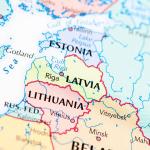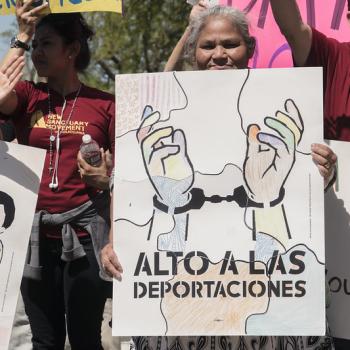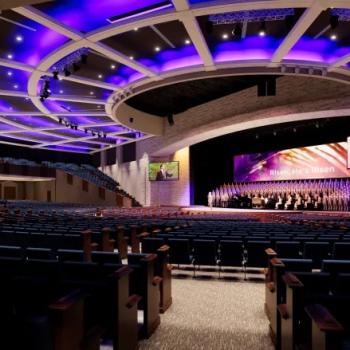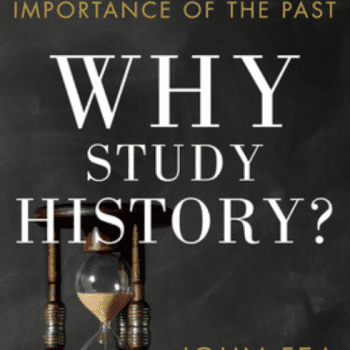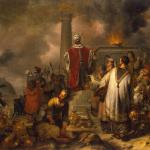I’m spending 10 weeks out of the country this summer, either for work or pleasure or to fulfill family obligations. And I’m embracing the fact that for most of that time, I’m acting as a tourist. I’ve never been one of those tourists from the US who wanted to hide that they were a foreigner. I’ve always assumed my clothing, demeanor, and conversation screamed “English-speaking North American” whenever I’m traveling out of my continent or hemisphere. I use maps, consult guidebooks, and show up in the places that lots of other folks from around the world are also touring: Stonehenge, the British Museum, the Prado, Hever Castle, Toledo’s famous walls, and many other sweet spots.
But reading Orientalism by Edward Said some twenty years ago also ruined tourism for me forever. Said taught me that as one of those industrialized North Americans, I’m often looking for the exotic primitive when I’m traveling. I am looking for the quirky, the unindustrialized, the simple, backward or “Other” (to use Said’s language). More damningly, I can find myself trying to find something “authentic” to the culture I’m visiting—and I tend to define “authentic” as something that doesn’t seem like it would also show up in my hometown in the US. Ever since I read Said, I judge myself a bit harsher when I realize I am trying to assess whether something is the “real” part of a culture I’m visiting. For instance, when I want to tell people back home that I saw a “really authentic French village” or a “purely traditional Thai town”, I am essentially serving as arbiter of another culture. And often tourists reify the “primitive” element of a culture—enjoying the “ye old Japanese” or “really old school Mexico” more than the myriad ways a people express themselves in the current world.
And yet, I love traveling and spending time in new places. I like every part of it. I enjoy not being as easily accessible by email and phone (“Oh, I’m sorry, I’ve been in Spain for 3 weeks and don’t have access to wifi very often”). I appreciate the break from daily routines in Chattanooga. I like learning new geography and history. I’m obsessed with maps and with learning new road systems (whichever side they drive on!), train times, and bus routes. Outside my own language, I only have facility in Spanish, but there are many places to travel where that is a useful skill and I appreciate the enforced practice. I’m aware of the old saying that sometimes “a change is as good as a rest”, and when things have been busy and stressful at home, a change of location can allow me to engage in more healthy practices.
My job as a historian requires me to travel to visit the sources of my scholarship. Even published sources and digital databases require a small amount of traveling for me because my university can’t afford to stock all the books and digital archives that I need. But also, being a historian is a little bit like being a tourist. We are foreigners in the culture and time that we study—being an outsider is what makes our writing an academic enterprise rather than memoir. 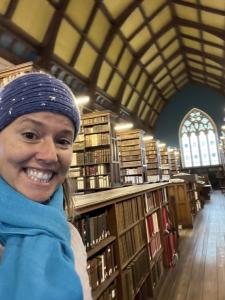 We have the delight and confusion and dependence on sources that all tourism also requires. Being able to engage in deep reflection within the sources that the people I’m studying produced, and immersing myself in their world also provides a change of perspective for me in a way that can be healthy. However, with Said’s warning ringing in my ear, I can also remind myself that even when I’m a tourist, I need to refrain from self-indulgence and smugness in my travel, whether literal or historical.
We have the delight and confusion and dependence on sources that all tourism also requires. Being able to engage in deep reflection within the sources that the people I’m studying produced, and immersing myself in their world also provides a change of perspective for me in a way that can be healthy. However, with Said’s warning ringing in my ear, I can also remind myself that even when I’m a tourist, I need to refrain from self-indulgence and smugness in my travel, whether literal or historical.
In mid-life, I’ve learned that certain kinds of travel and tourism can also develop my spiritual practice and some of the Christian virtues that I crave. For instance, travel always requires dependence, and therefore it chastens my pride. This seems counter-intuitive to me as I also associate traveling with independence and I’m aware that my social media posts from far away can be a form of humble-brag. One must have a certain amount emotional, financial, and personal autonomy to take off and be in another place for any length of time. But I am being reminded more and more of how much when I’m a tourist I depend on others for information, generosity, tolerance, and even personal care when I’m traveling in a new place.
Much of my travel this summer involves visiting family and friends. I’m being picked up from the airport, room is being made in someone’s home for me, and meals are being created and served. People are taking time out of their schedule to show me around and moving their priorities to spend evenings and days in conversation or recreation. And so I’m submitting to the spiritual discipline of patience and prudence. Things aren’t always going the way I want, and I’m not totally in charge of all the plans.
Such hospitality requires all parties to adjust themselves. I’m in a new place. I’m in the homes of people whose assumptions and habits are different from what I’ve experienced. At home, I’m the one who reaches out to others, but as a tourist I’m dependent. I need to adjust, but also, my hosts are adapting to me as well, trying to make things as easy for me as possible. I sometimes say things or make observations in ways that can be perceived as rude. Worse, I don’t always even notice when they are adapting to my presence or that my being there is preventing the relaxation that only comes when you’re surrounded with people you don’t have to be “on” with or explain yourself to. This requires both humility and gratitude on my part. And sometimes it is hard to be grateful all the time. I don’t like being aware of my dependence and weight in the world. And even when I’m traveling in places that don’t require me to stay with friends, the host culture has to make way for my mistakes, my fumbling in the language, my need for navigation, and my over-use of their resources of water, food, and energy.
Humility, gratitude, persistence, patience, stamina/fortitude—all of these are honed by traveling outside one’s sphere of influence and being attentive to what one doesn’t understand. And sometimes the virtues of scholarship and travel overlap. This summer I hope to expand my facility for listening closely to both unfamiliar and recognizable voices in my historical sources and my international context. And if sometimes I post a tourist selfie, I will be pairing it with some self-deprecating honesty and with gratitude to my hosts, past and present.



